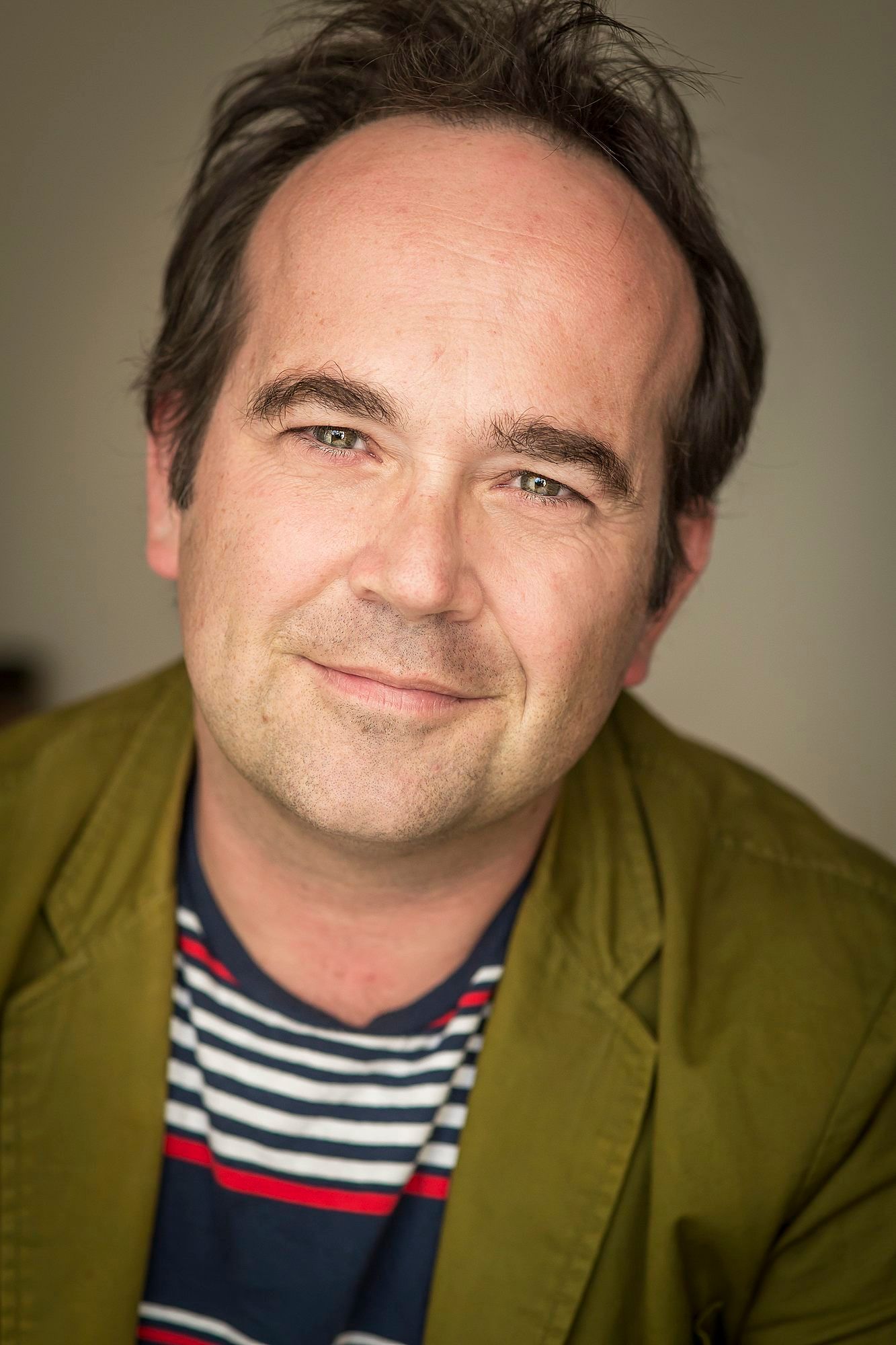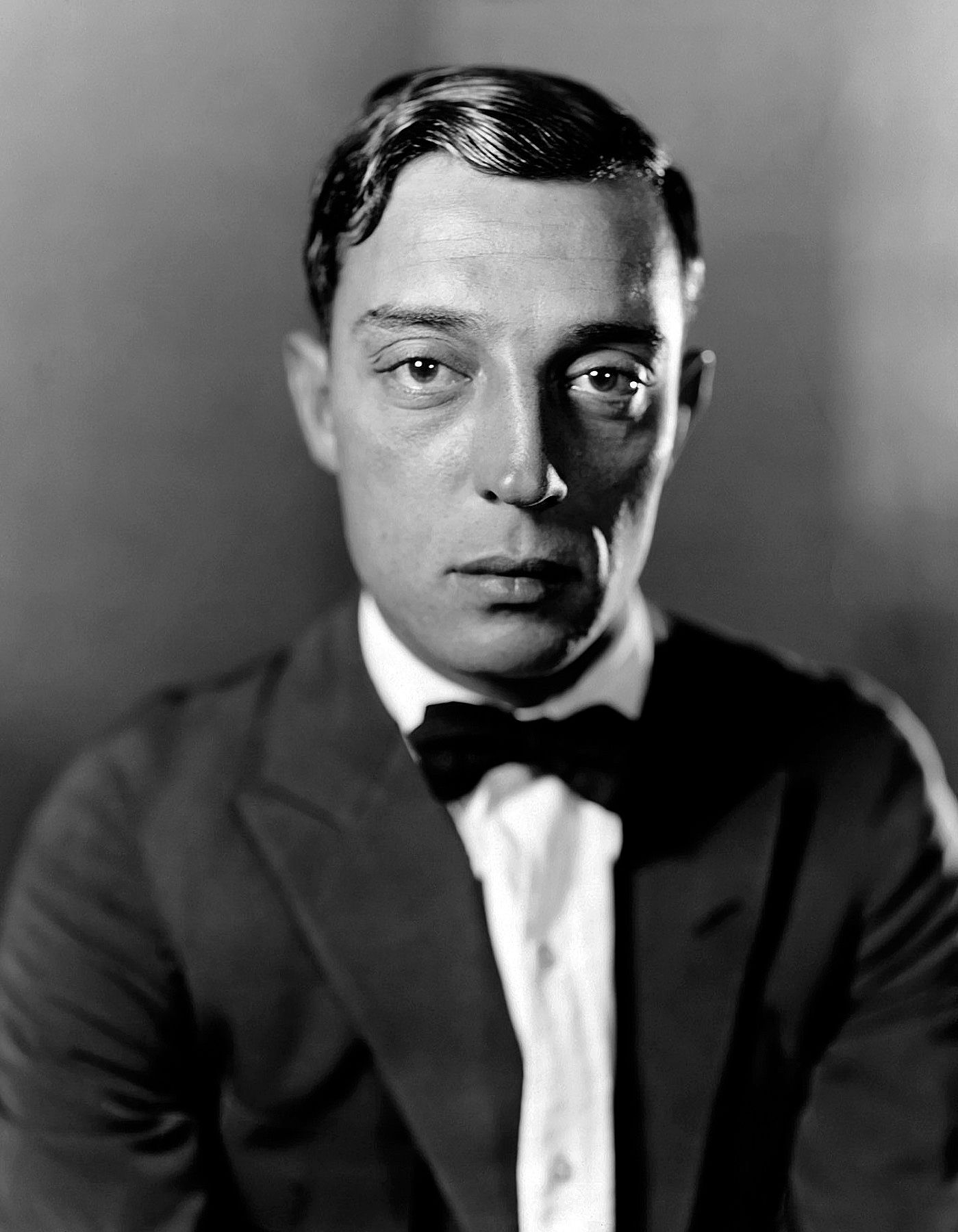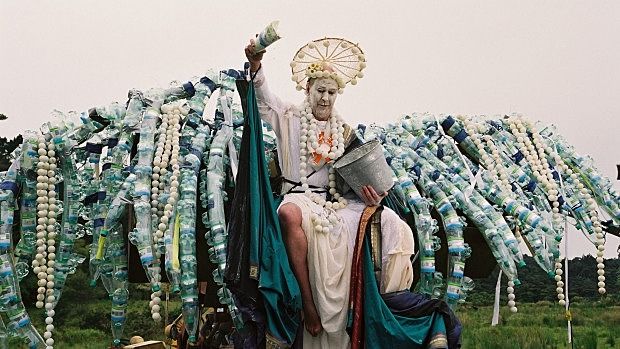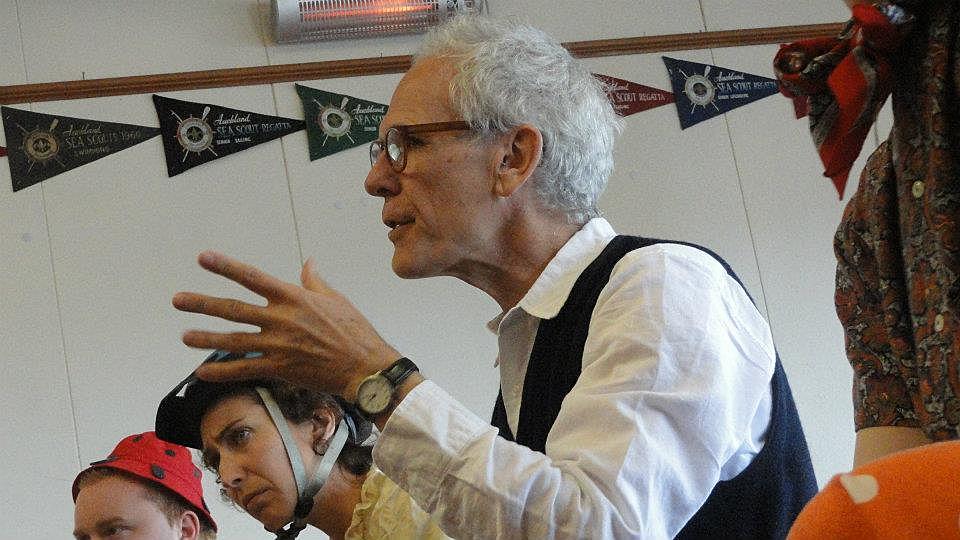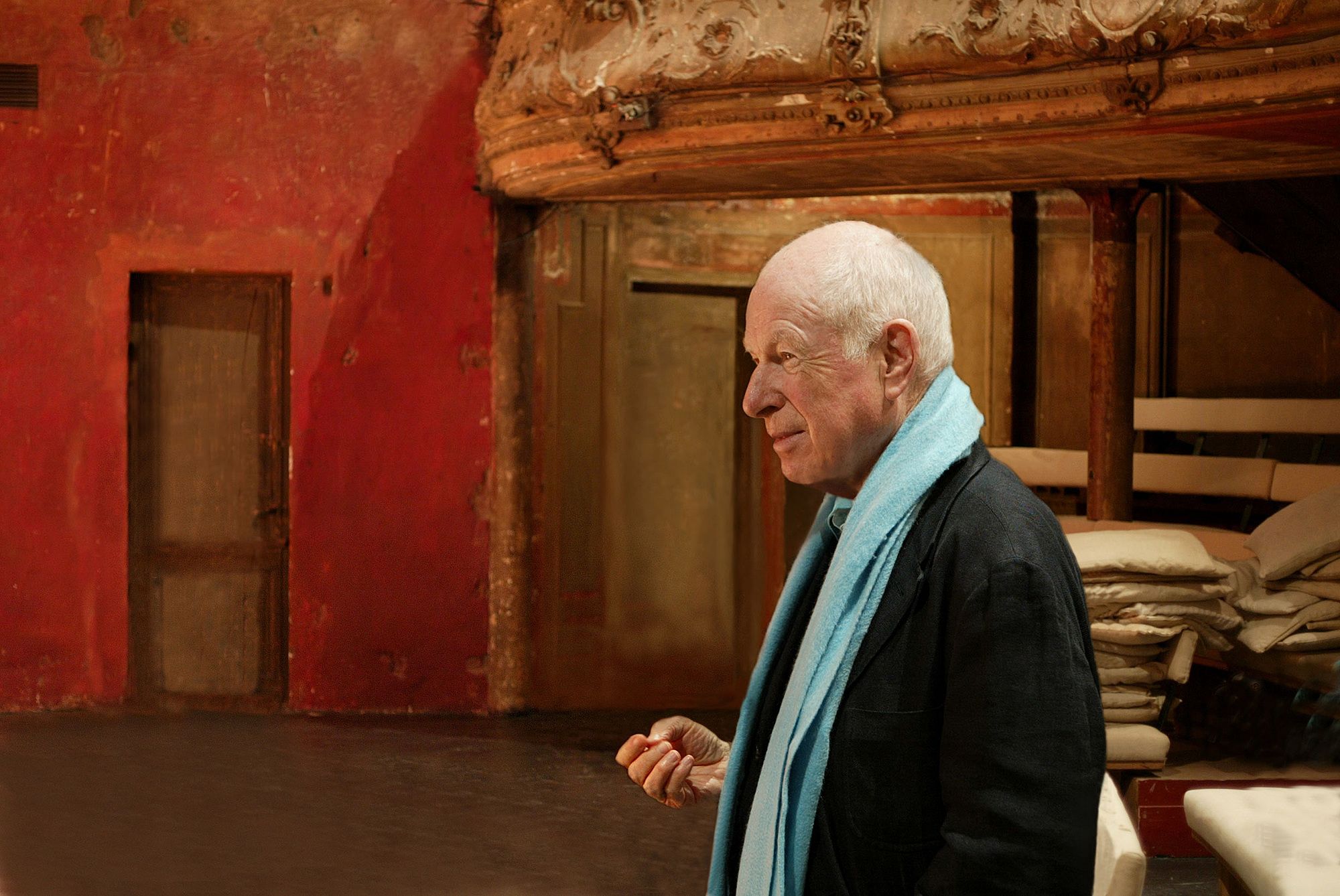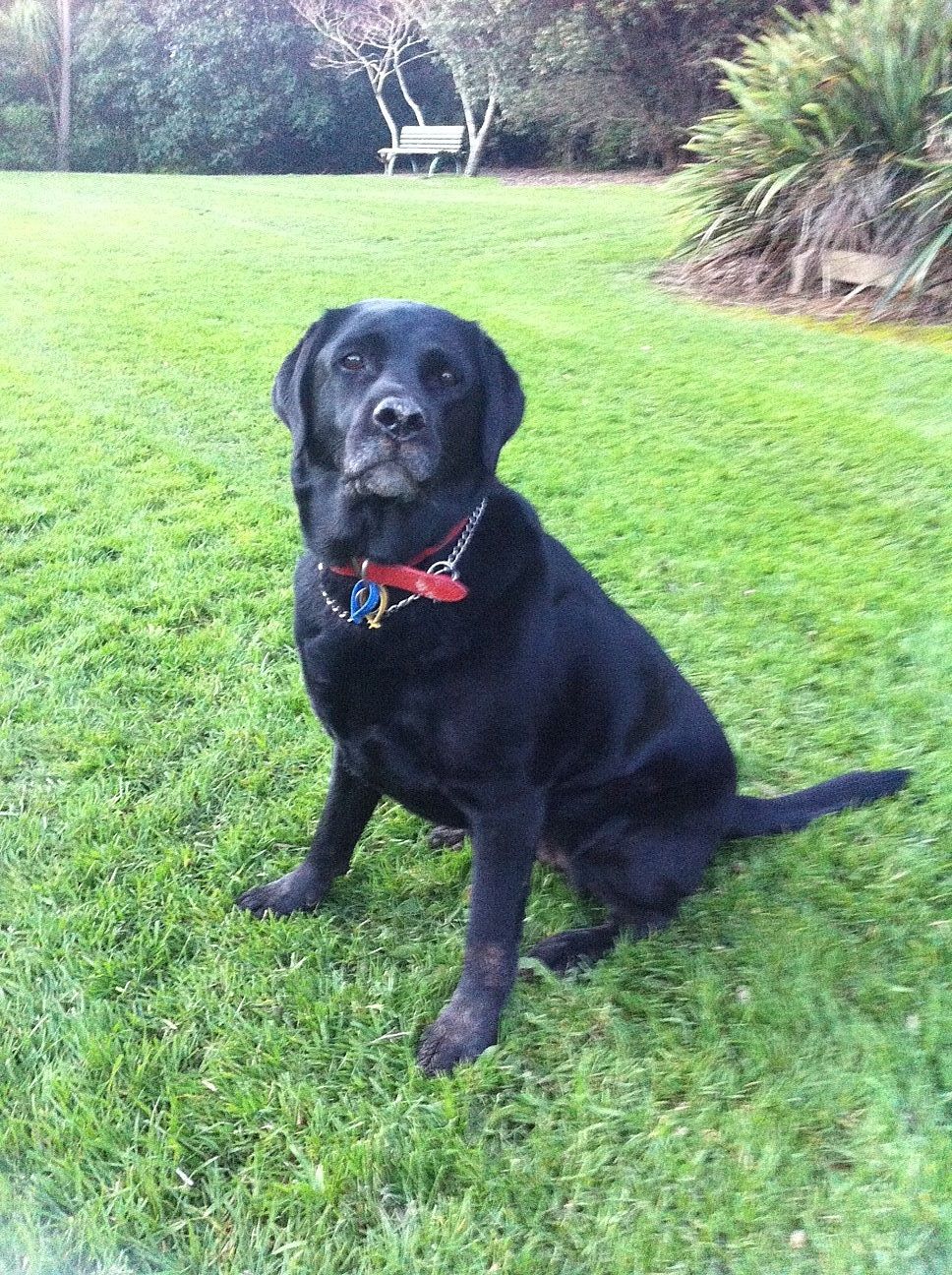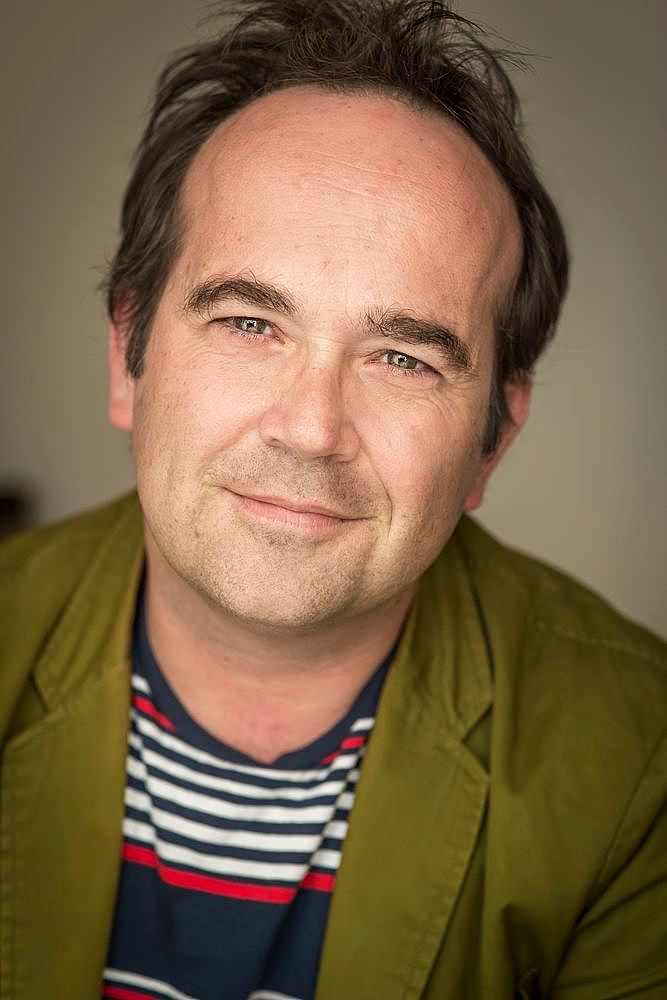Loose Canons: Ben Crowder
Loose Canons is a series where we invite artists we love to share five things that have informed their work. Meet the rest of our Loose Canons here.
Loose Canons is a series where we invite artists we love to share five things that have informed their work. Meet the rest of our Loose Canons here.
Ben is co-founder of Theatre Stampede. He creates bold theatre that is hallmarked by striking visuals and a sense of thrill. He has directed all of Theatre Stampede’s productions since 1999. Past productions include 360 - A Theatre of Recollections and Head (both in collaboration with Nightsong Productions) in addition to The Young Baron, The Hunchback of Notre-Dame, A Midsummer Night's Dream and Blossom.
In another collaboration with Nightsong Productions, Ben co-directs Carl Bland's The Spirit House, starring Ian Mune and as part of Auckland Fringe Festival 2017.
Buster Keaton
I love this man. I first enjoyed one of his films in the spectacular setting of the 1930’s Astor movie palace in St Kilda, Melbourne when I was a student. The film was a silent film, and this screening enjoyed a live film score by the Blue Grassy Knoll. Buster Keaton inspires – he is funny and poetic as a performer. He epitomises the beauty of clown to me – open, naïve, and truthful. He started out as a live vaudeville performer, but jumped on the film revolution. However he carried with him his amazing physical ability and comic timing. The precision and audacity of some of his set pieces, whether involving steam locomotives or a revolving house, are utterly magnificent.
I went to a screening of a Keaton film at the Taranaki Arts Festival a few years back. It was not the young crowd who had flocked in Melbourne but a very elderly group in the audience. I sat next to a man who said he had seen the film before – in Whanganui in the 1930s! Buster Keaton was an innovator and you can see him experimenting with the camera and as an artist. It feels fresh and exciting. On some shoots he would head out into the Californian desert and have to pack the cameras in ice to avoid melting the film. His work is a driven adventure – much like theatre.
Warwick Broadhead
The extraordinary Warwick Broadhead is no longer with us. He was a rogue New Zealand star who brightened and inspired. He brought love, chaos and charm with him in abundance. I loved his wicked sense of play with its disregard for boundaries and its shifting dynamic.
Warwick had the ability to make the extraordinary every day. I first met him at a party hosted by the actor Alison Wall. We hit it off – laughed and caroused (this implies alcohol, which would have been true on my part but in hindsight I doubt it was for Warwick as I never really knew him to imbibe, yet he was often the most raucous and volatile at an event). He also was passionate about art – he loved image, beauty and extravagance. I didn't know Warwick had seen a show I had directed, and at this first meeting what Warwick wanted to talk about was a moment in the show that had struck him some weighted fabric that was pulled across the stage was released, and the air filled it from beneath. This was a small moment, a breath, in the show that I also had loved, but that no one had ever mentioned. It was fantastic as a young theatre artist to realise other people shared in your delight.
Warwick’s work wasn’t always to my taste – but I adored his ambitions and his anarchic qualities – and his ego. Warwick was attracted to energy – and this is something I understand and respect. We work in a world that is becoming ever more rule based and conventional. Warwick was an outlier that completely did his own thing. I did not know him when he married his house – but I was there for the divorce rituals. When Florian Habicht’s film about Warwick was screened at the film festival he had been asked to do a Q & A. He claimed (which I highly doubt) that he did not know what that meant so chose to take it as Queer and Anarchic. He got up in front of the stage, answered no questions and did a song and dance number. He cared not a bit for rules. He was wildly refreshing.
I miss Warwick. But I am also still inspired by the integrity and love that he displayed as he recklessly borrowed from other art forms and cultures and conjured something that was uniquely his own.
John Bolton
John is an incredible man and teacher. I was fortunate enough to attend his theatre school in Melbourne from 1996 - 1997. My path there was one of discovering theatre at Otago University, then studying up in Auckland. It was that year that I saw a show by the company Theatre At Large - it was the first time I had realised theatre could speak to me and I suddenly had a clear calling. Up until that moment I enjoyed acting in shows and the camaraderie and such that they create but had not really seen theatre as a potentially urgent and transformative art form. I was hooked. I began trying to inveigle myself into Theatre At Large’s world – I did some workshops with them and remember asking Christian Penny where I could look for training. He immediately proffered the John Bolton Theatre School. I look back on this decision to head to John’s school as a major turning point in my life. I knew I loved making work and therefore John’s school was the natural fit.
To say my horizons were broadened is an understatement. John is a phenomenal teacher who pushes his students to take risks and to explore many theatre forms, whilst looking to make them relevant for today. He does not tolerate bad theatre. I remember him once telling me that if for a second you are bored when watching a rehearsal to rest assured the work is boring and it needs tuning, revising or to be thrown out. I always try to remember this. He helped me to trust my instincts and my impulses. He made me confident that the best I can be is myself – there is no point trying to be anyone else! He was a totally honest teacher, who at times crushed you with his words or responses, not because he was unkind but because he generously spoke the truth. The drive was always to improve, to discover, and honour a love of theatre.
Peter Brook
I studied Peter Brook at university and found reading his books a bit of a trial. However many years later, when I had made the shift from studying theatre to actually making it I accidently rediscovered him. I consumed one of his books in a single sitting. Suddenly what he was saying meant something, and it was all true! The wisdom of the man is huge. I usually sleep with a copy of one of his works by my bed. It may go untouched for up to a year. But perhaps like someone seeking solace or inspiration in a bible I find it will suddenly occur to me to read a chapter or two. As I have read the books many times I tend to naturally fall on the perfect treatise that correlates to my current angst. He is fearless - his experiences and thinking embolden you.
Walking with Roberta
Roberta is my dog. We have been together for over ten years. We walk every day without fail. We have even done it in the dark at 4.30 am in a thunderstorm (Roberta did look a little concerned as to what we were up to). One of the challenges of being a maker in theatre is finding space in your day to think and reflect. The dog walk allows this. Sometimes I use the walk to make needed phone calls, but Roberta is good at getting back to a simpler walk, as once attention is off her she always plays up (loses a ball, rolls in something, finds a discarded chicken bone to eat). She is happiest when I just walk. As am I. This is often when I come up with solutions in my work or at least mull over where we are at in the process. It also gets me moving in the day – I get out into the park and experience some beauty and simple pleasures. These are excellent touchstones in the maelstrom of production. We even get to see the ocean, and sometimes even get in it.
The Spirit House is on at the Herald Theatre
Thursday 16 February – Sunday 5 March as part of Auckland Fringe
Tickets availabale here
